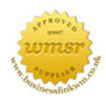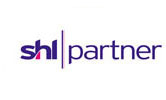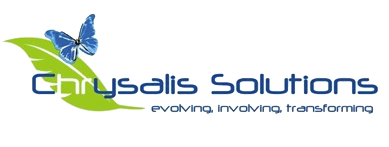Download a PDF with full course details HERE
Team Building and Team Development
It is easy to find suppliers of Team Building and Team Development courses these days. There is a plethora of choice available in the market place all professing to offer the very best options for your team events.
We know we have something different to offer. We don’t run ‘off the shelf options’ – we work closely with organisations to tailor programmes to their specific needs. Again, many suppliers will profess to do this but we really do.
One of the key elements which is often missing from standard team builds and team development days is the applicability to life back in the workplace. Again, we work hard to support our clients deal with real issues facing their teams.


Team Builds and Team Development should be fun and have elements which build team cohesion. We use accelerated learning techniques to ensure that whilst having fun, delegates are learning by doing and the impact of that learning can be tremendous, because they have experienced something which sticks in their minds.
Our bespoke courses then:
- Are fun.
- Give theoretical understanding of what makes teams effective.
- Use strong linkages back to the workplace.
- Use indoor and outdoor activities and accelerated learning techniques which have been shown to increase measurable learning.
- Provide frequent opportunities to work together, reflect and action plan for return to work.
- Provide insight for both individual and collective development.
Team Building – example course
The OPQ is a personality profile tool which is extremely useful in the development context. The individual delegates will gain insight into their own personal preferences for work styles through the OPQ completion and pre-course feedback sessions. Once at the event the delegates will be asked to share information about their preferences but not before the team have given their initial views and perceptions about what they believe their colleagues’ preferences are based on their own observations of behaviour back in the work place. The OPQ will provide a framework for the delegates to understand how their own and their team colleagues preferences can all link together to provide effective team working. We would expect to see some surprises as very often individuals get ‘stereotyped’ or ‘pigeon-holed’ based on the work that they do or what others perceive. This can constrain development of the team and the individual. The OPQ provides a structured mechanism for discussion, using Belbin’s team types, rather than unstructured feedback which can be difficult to make sense of.
Delegates have individual feedback sessions following completion of the OPQ and receive a detailed report to inform their own development.
Exercise Examples
- Indoor Exercises The delegates are set tasks to work on. Whilst the group is focused on the achievement of the task, they will be demonstrating particular behaviours whilst working within the team. Observations on these will be extracted by the facilitators who will also input into the discussion. The ultimate output from these exercises is to focus on how individuals behave within teams and the impacts of that behaviour on the rest of the group. Did delegate behaviour enhance the groups’ ability to achieve the task or hamper it? From this will be action points for the team collectively and the individual in terms of how they may better work together.
- Work-based Exercises Here a work based issue is tackled. It may be a task, a problem, an idea. Inclusion of an issue which is ‘linked’ to the work environment serves to highlight the fact that the learning points from the event do have significant use and meaning in the ‘real’ world. All too often delegates attend courses and fail to connect what they have learnt away from work, with what they need to do ‘in’ work.
- ‘Hitting the Trail’ – Outdoor Exercises Our exercises are fun as well as having a learning outcome and this exercise is the ‘highlight’ of the event for many. The team have tasks to complete which are outdoor based and we would expect to see some slight shifts in the behaviours of the team members based on what they have observed, seen and learnt over the preceding exercises.
- Decision Making This exercise builds on the learning of the previous activities and provides an opportunity for the group to try new approaches as by this point in the event they will have built up enough comfort with each other to make this possible in a ‘risk free’ environment.
- Other Exercises Each of the trainer led sessions where the concepts of effective teams are introduced will include participative exercises designed to illustrate various learning points. Many of these will use the principles of accelerated learning where delegates learn by doing, accessing interest and creating impact. The delegates will leave the event ‘buzzing’ and will continue to talk about the event for days and months to come.
- Action Planning We believe that the ‘crescendo’ of the day is the action planning for the return to work. Through facilitated discussion and activity the group will leave the event with a clear action plan and in high spirits, and energised to face the challenges ahead.
Team Development
Designed for an existing team or as a next step following the first ‘Team Build’ course the focus here is on moving the team still further forward. Different organisations request different things for these events but examples of what might be covered are listed below:
- Where the team are now in terms of performance.
- Increasing understanding of the issues facing the collective and individual teams within the department.
- Building relationships and providing networking opportunities for the team.
- Providing opportunities for working together on activities followed by reflection of what worked well and things that did not.
- Consideration of the obstacles which face the teams and action planning using solution-focused feedback.
Pre Course Work
As previously we would suggest a small but important element of pre-course work is undertaken prior to attendance at this event. This enables the delegates to tune in and focus on some key issues for discussion. Our view of the pre-course work at this stage is that it will comprise of an opportunity for delegates to focus on their own individual achievements and frustrations, getting them to establish what the obstacles in their own area are.
We include energisers to build an atmosphere of trust and allow delegates to get to know each other. Ideally this element might be started on the evening before the course. This does also depend on where the venue is to be located and the travelling constraints of delegates.
Some options for content
The issues an organisation wants to address in a Team Development course do vary. However, some elements that we have run for our clients are included below:
- Role Clarification Work duplication and difficulties can exist in terms of process ‘hand on’ and ‘hand off’. In the pre course work we ask delegates to focus on their own individual achievements and frustrations over the past year and to establish what the obstacles are for their own area.
- Sharing Information An opportunity to discover more about the collective team in terms of their own personal strengths and limitations.
- Removing Obstacles Modelled on the exercises used previously, the team consider the dynamic as it currently stands and how their perception of the obstacles being faced might be influenced by their own work preferences.
- Feeding Back This session enables delegates to give each other positive feedback about what they value about each other in a facilitated ‘safe’ environment. Having identified obstacles to their team’s effective performance the focus shifts to identification of what the individuals within the team need to keep doing in their current roles.
- Action Planning Facilitated visual and participative sessions creating an action plan as individuals or the collective team usually on a specific issue(s).
- Creativity and Problem Solving Opportunity for the team to work together on an exercise which involves creative thinking and thinking around problems.
- Route Mapping Where the team is now to where they need to be.




